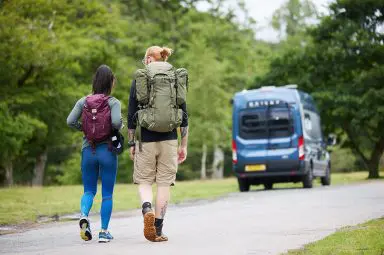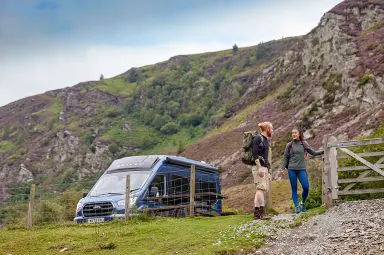Exploring Morocco by Caravan or Motorhome: An Essential Guide
The northern segment of the African Continent is considered a developing country, although, by GDP, it is regarded as the 5th largest economy in Africa. The country has ancient cities, rugged vistas that haven’t changed for millennia, and an incredibly friendly population.
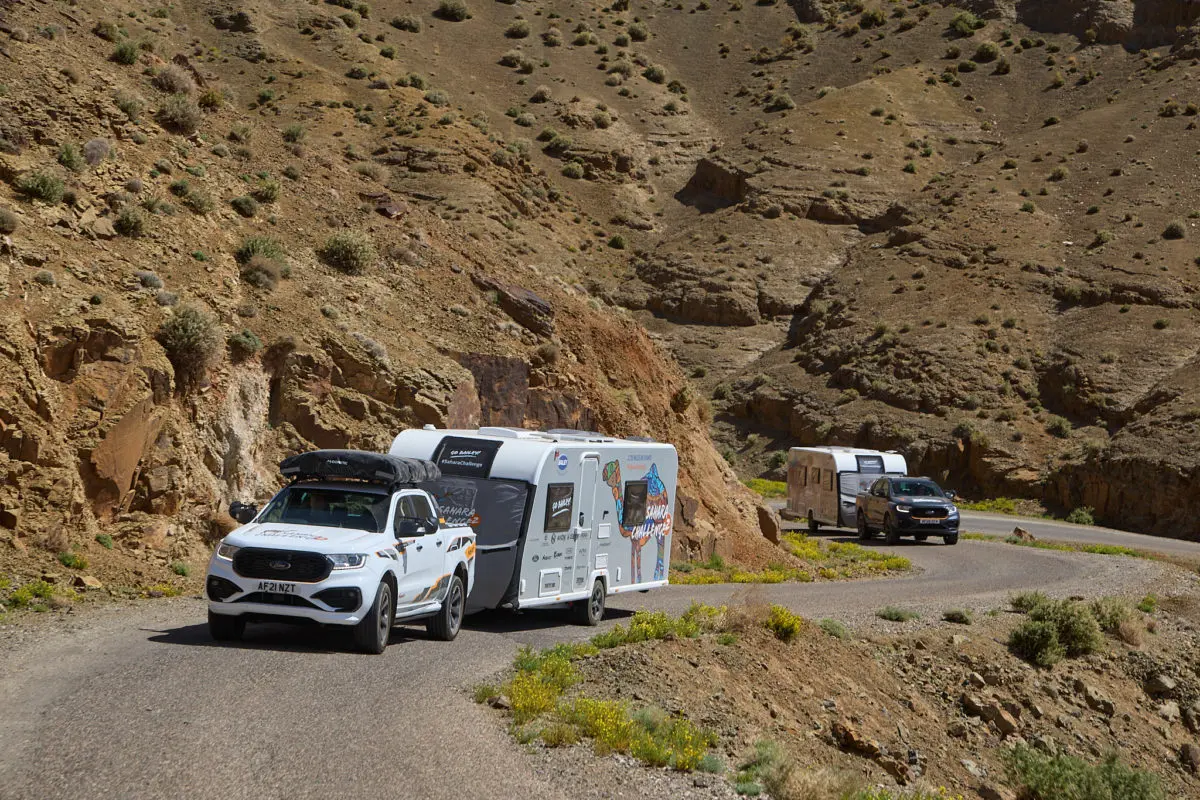
Reaching Morocco: FRS Ferry from Algeciras to Tangier Med
The ferry crossing takes just 90 minutes and turns a Spanish holiday into a Moroccan adventure. We travelled with FRS from Algeciras to Tangier Med, and the ferry resembled many a cross-channel service with a few notable exceptions. Our ferry was different from the roll-on, roll-off type and arriving at Algeciras; we were greeted by articulated lorries reversing onto the vehicle deck. Before the trip, there was much debate over whether we would have to reverse the caravans on, but I’m pleased to report that caravans drive on and complete a U-turn at the far end once the lorries have exited. I saw a large motorhome reverse onto the ferry, but it was a whopper, and the Bailey Adamo motorhome that accompanied us on the trip followed the same route as the car & caravan I was driving.
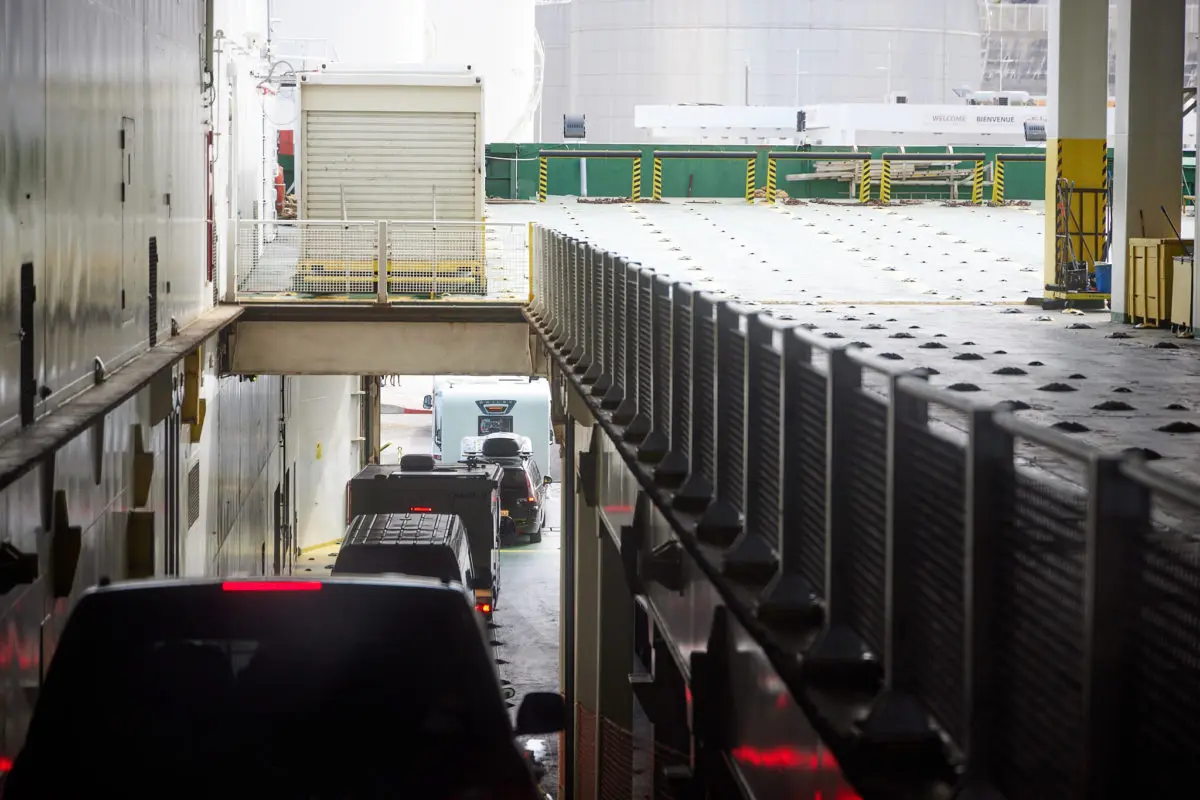
It’s important to note that the ferry has a passport control booth on the same level as the lounge. Forms (available from outside the booth) must be completed and presented with your passport. I was then asked a few quick questions about my occupation and reasons for visiting Morocco before I was stamped into the country.
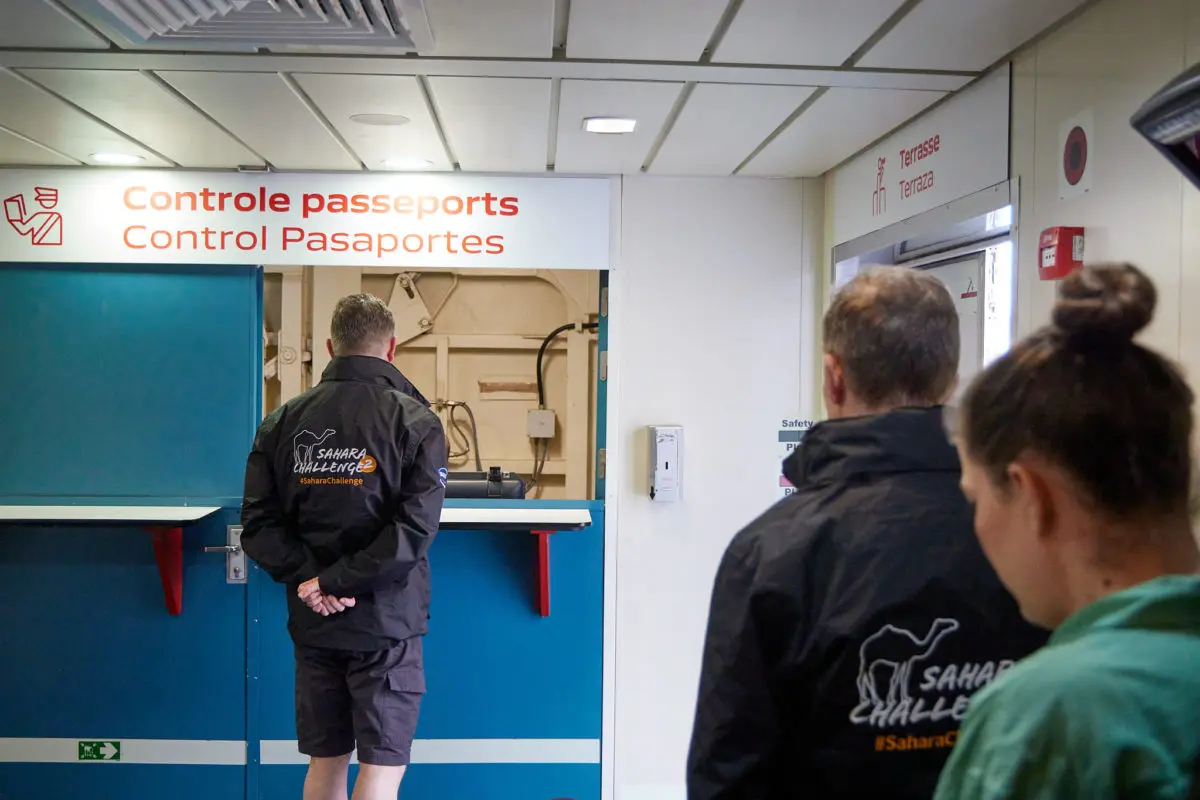
Which Documents did I need at the Tangier Med port in Morocco?
A passport is vital for any overseas trip, although it will likely be inspected regularly in Morocco – at the port and throughout your journey. Although we had been stamped into Morocco while on the ferry, our passports were rechecked while exiting the ferry and once more at Border Control. Vehicles require a temporary import certificate, and handing my driving licence and the vehicle’s V5 (the original document, not a copy) to the border staff meant I received a credit card-sized import certificate within minutes. Please keep it safe as you need it when leaving the country.
What car Insurance did I need for Morocco?
European cover is granted to many UK car insurance policies, although, as Morocco isn’t part of the EU, it is often excluded. Insurance is available at the port if your insurance company can’t offer cover. Upon leaving Border Control, look for a large car park in the centre of a group of buildings. There was plenty of room for two caravans on a motorhome to park across the bays. With the port behind you, the insurance booth is at the far end of the right-hand row of buildings. The cost for one month’s insurance for a 2021 Ford Ranger was 967MAD, which is approximately £76.
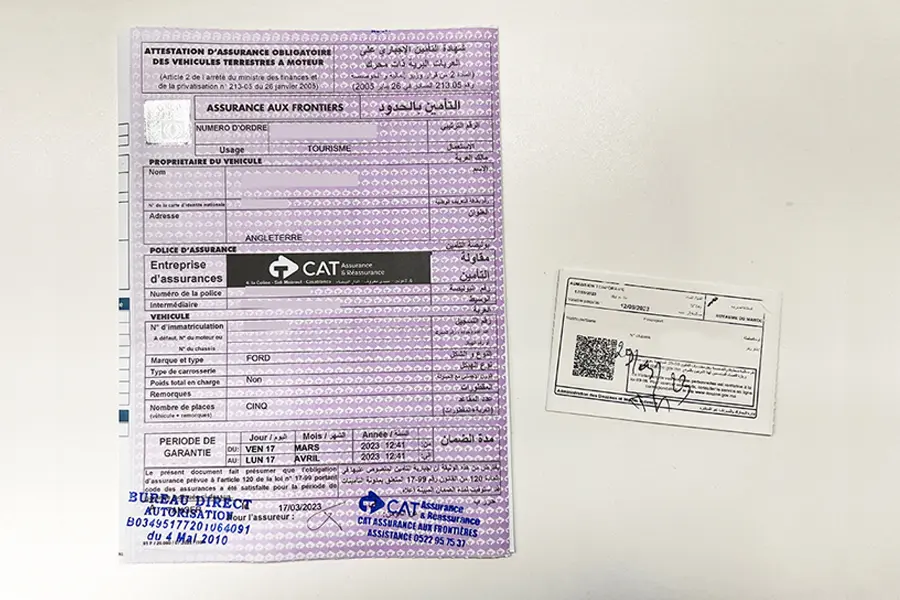
Roaming calls and data in Morocco, or should you buy a local SIM card?
Before the trip to Morocco, I spoke to my phone provider, EE, and was advised that roaming data and phone calls could be very expensive. I looked at several options, with a local SIM card being the eventual winner. The SIM cost €4, with each gigabyte of preloaded data being an additional €1. The prices quoted were in Euros but had to be paid by cash in Moroccan Dirham, or MAD. There’s a cash machine at the port. The Moroccan phone network was superb and allowed me to stream music each day while driving, as well as the obligatory checking of emails and social media posts. A local chap told me that Morocco doesn’t have a wired telecom infrastructure, so the country tends to rely on a mobile network which is why we had signal everywhere, even when staying in the desert an hour from the nearest town.
Several booths at the port sell SIM cards, with the price being the same at each. Some folks purchased their SIM cards from the same chap who sold the insurance, but as there was a queue, I went to another booth a few doors down. English was spoken, and I asked for 20GB of data. Handing over the equivalent of €24, the SIM was supplied, activated, and worked perfectly from the moment I inserted it into my phone. Excellent service and phenomenal reception throughout the trip.
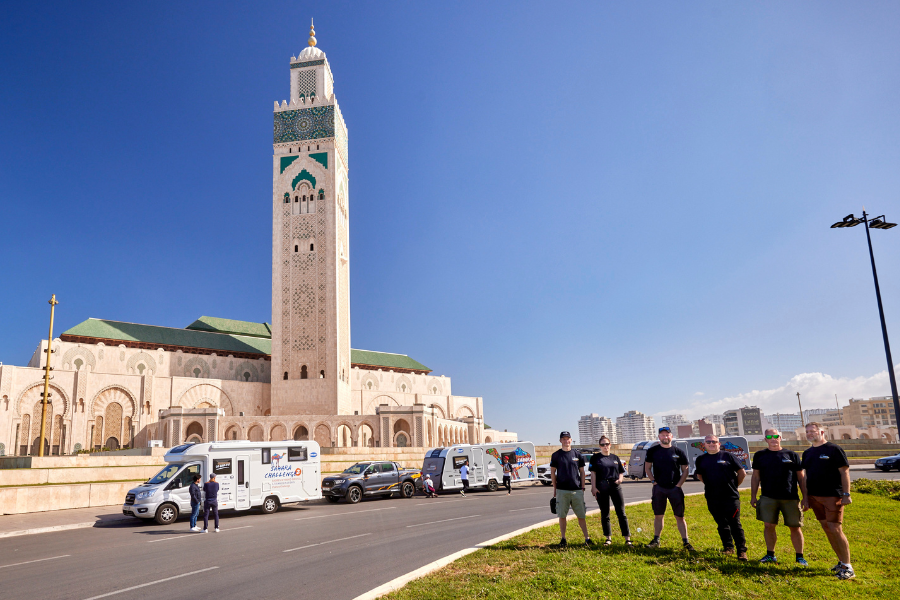
What’s it like driving in Morocco?
Morocco is a country of contrasts, with driving attitudes mirroring this. We were advised to steer clear of large cities, so, of course, we drove through the centre of Casablanca to capture an image outside the Hassan II Mosque. The photograph shows a tranquil scene, although the route in and out was very different indeed. Few city centre cars have straight panels, the reason for which is immediately apparent when trying to negotiate the centre of Casablanca. Add scooters to the mix – many of which appear from unexpected directions – and a caravanning weekend in the New Forest has never seemed so easy. Obviously, we only have ourselves to blame, but we do have some incredible images as a result, and I agree wholeheartedly with the advice to steer clear of driving within Moroccan city centres whenever possible, especially when towing a caravan.
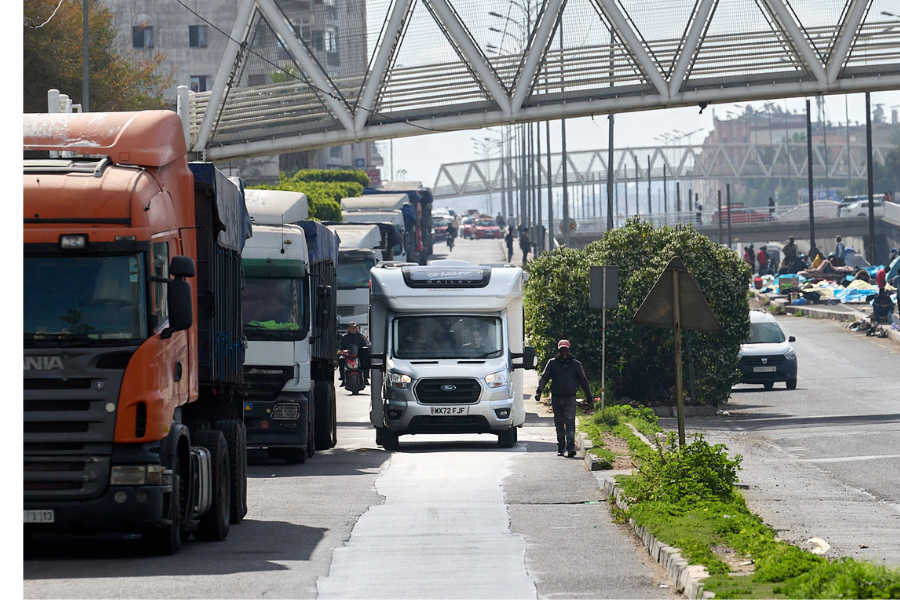
Driving along Morocco’s west coast, the toll roads are quiet, incredibly well-surfaced, and resemble many auto routes found in France and Spain. Again, rules of the road are open to interpretation, so keep your eyes peeled for hitchhikers in either lane or vehicles pulling to a halt at unexpected times.
Away from the cities and dual-carriageways, the roads have an unrushed feel, with traffic – two-wheeled and four-wheeled – being much more predictable. The Atlas Mountains’ surfaced section is one of my favourite driving routes of all time, and I’m planning to return on a motorcycle.
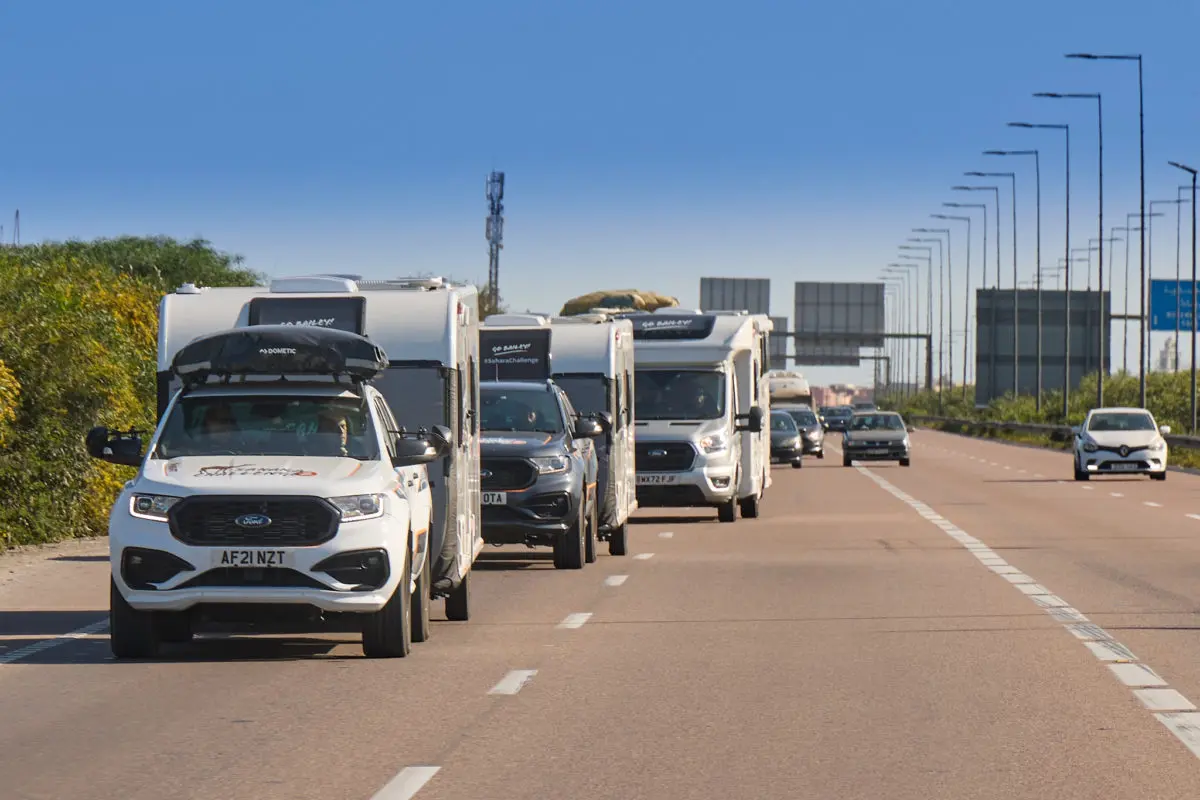
The Moroccan Police Force
With police numbers in the UK dwindling in recent decades, the scale of the Moroccan police force was eye-opening. During our longer driving days, it wasn’t unusual to cross a dozen police checkpoints, although we seldom piqued interest during these random inspections. I was pulled over on just one occasion by a Gendarme who seemed interested in the image of the camel that dominated the side of the Bailey Phoenix+ 642. He was incredibly friendly and asked about our journey that day before allowing us to continue moments later. Speed checks are frequent and are often seen at the entrance to toll booths and town/village boundaries.
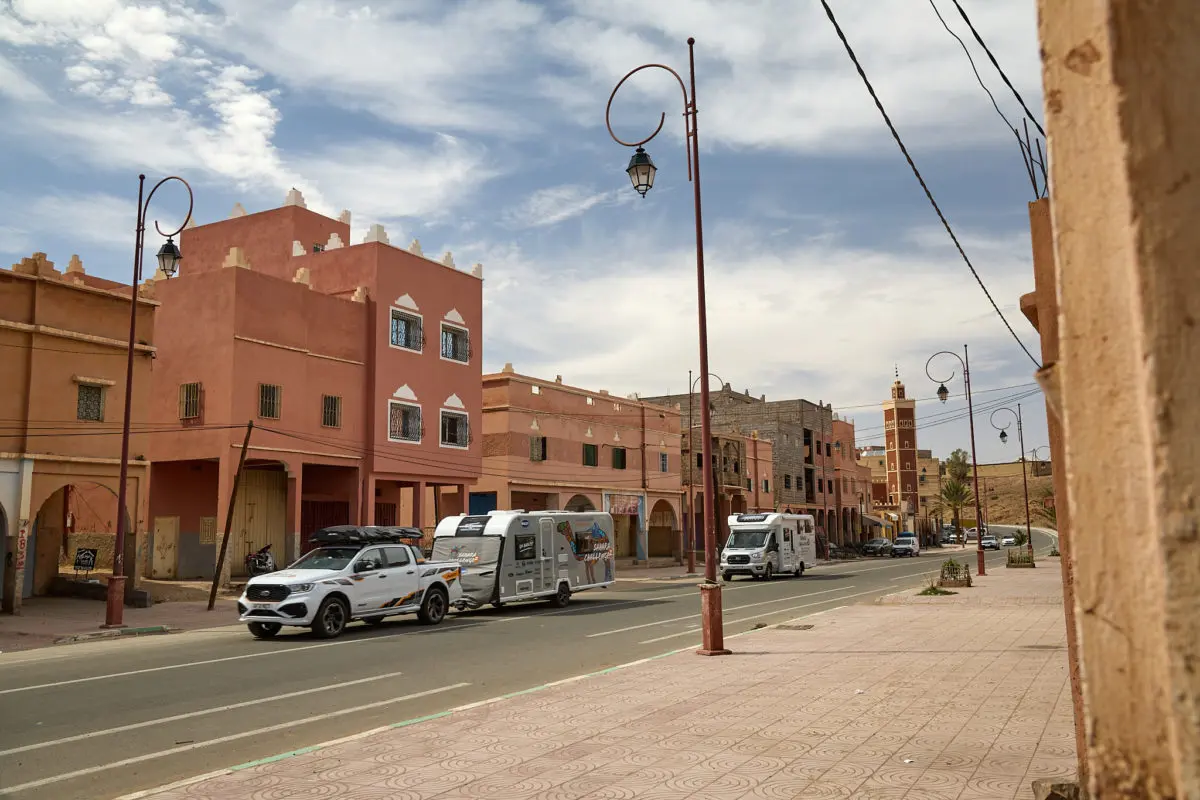
Using cash and cards in Morocco
Morocco is a cash-dependent society, and we were surprised at the number of establishments – including large fuel stations and campsites – that didn’t accept card payments. In the UK, we’ve become increasingly reliant on paying with plastic, especially since the pandemic, and we often found ourselves low on cash. Thankfully, cash machines are commonplace, and the Revolut cards we used for the trip worked perfectly while offering preferential exchange rates.
Essential items when touring Morocco by caravan or motorhome.
Wishing to enjoy every moment of the trip and being unsure of local water quality, we only used bottled water for drinking, making tea, and brushing our teeth. Even though a large portion of our trip was during Ramadan, supplies were plentiful and inexpensive.
During our 3 ½ week trip, each leisure vehicle used one 6kg gas bottle, although we were cooking for up to 22 people, and the Cadac BBQ was on duty many times. Gaslow is best known for its refillable gas systems, but with no LPG network in Morocco, Gaslow supplied us with a hose to connect a Moroccan bottle to the Truma regulator. Gas bottles can be purchased from almost anywhere, and it wasn’t unusual to pass through a remote village that had a complete range of gas bottles on display.
As for the caravanning kit, beyond the usual equipment we’d carry in the UK, we only needed a Euro electric lead adapter, a polarity checker, bug spray, and sun lotion.
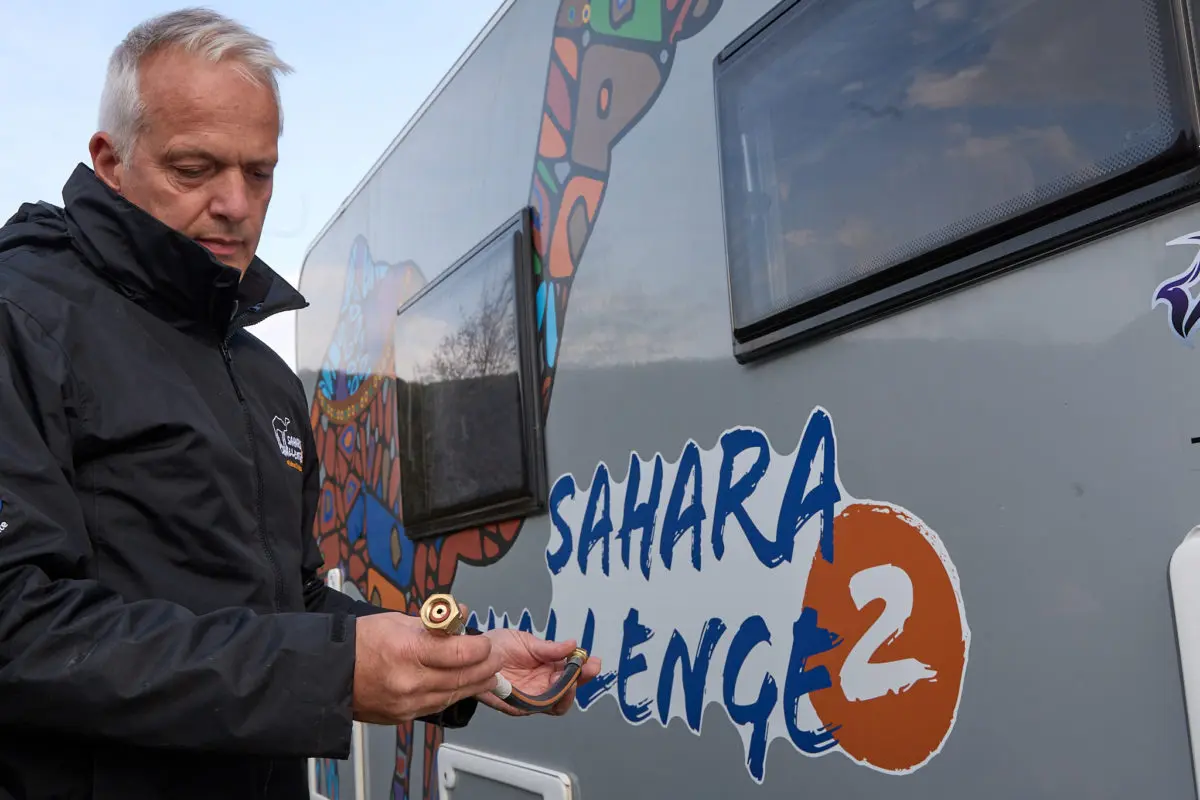
Coming up…
In Part 2 of the Moroccan blog series, I’ll discuss things to consider when booking your first trip to Morocco, such as sites, routes, facilities, and things to enjoy and avoid!
Previous
Exploring Morocco by Caravan or Motorhome: Which Campsite?
Next
The Sahara Challenge 2
Latest news & events
See all news & eventsChipping Sodbury Spring Sales Event
BADMINTON ROAD, CHIPPING SODBURY, BRISTOL
West Country Motorhomes Open Weekend
BRISTOL ROAD, BRENT KNOLL, HIGHBRIDGE, SOMERSET
Swindon, Oxford and Reading Caravan and Motorhome Centre Easter Sales Event
GREATFIELD, ROYAL WOOTTON BASSETT, WILTSHIRE
Grantham's Midlands Caravan & Motorhome Season Ready Show
SPITTLEGATE LEVEL
GRANTHAM
